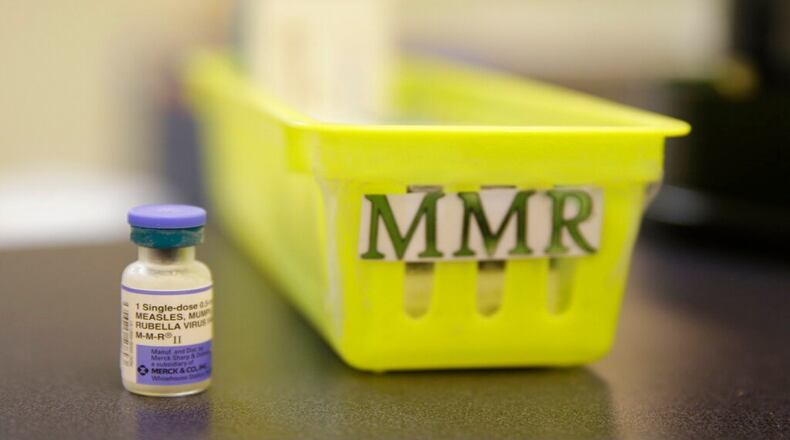The Georgia Department of Public Health confirmed a second case of measles in metro Atlanta within the past week: both of them unvaccinated and both in the same family.
DPH spokeswoman Nancy Nydam told The Atlanta Journal Constitution the agency confirmed this second case late Thursday but would share no details such as their ages or hometown.
Last week, DPH announced the first confirmed case of measles in an unvaccinated person who was exposed while traveling out of the country. DPH worked to identify anyone who may have had contact with the person while he or she was infectious. There are no additional exposures related to this second case because the person was quarantining at home with the other family member with measles, Nydam said.
While the incubation period for measles is typically 7-14 days, it can be as long as 21 days. It is possible but not likely that there could be additional cases related to the first confirmed measles case, Nydam said.
These are the first measles cases in the state since 2020.
Measles is so contagious that if one person has it, up to 90% of the people close to that person who are not immune will also become infected, according to the CDC. Measles spreads through the air when an infected person coughs or sneezes. The virus can stay in the air or on surfaces for up to two hours after an infected person has left the room.
Measles symptoms appear 7 to 14 days after contact with the virus and typically include high fever, cough, runny nose, and watery eyes. Then a rash of tiny, red spots breaks out. It starts at the head and spreads to the rest of the body.
Infected people can spread measles to others from four days before through four days after the rash appears, according to the Centers for Disease Control and Prevention.
But the MMR (measles, mumps, rubella) vaccine, which is traditionally given to children, is very effective and can prevent illness. The CDC recommends children receive their first dose of MMR vaccine between 12 to 15 months of age and a second dose between 4-6 years old.
About 95% of the people who receive a single dose of MMR will develop immunity to all three viruses. A second dose boosts immunity, typically enhancing protection to 98%.
People with symptoms of measles should contact their health care provider immediately. They should not go directly to a doctor’s office or hospital without calling first to discuss symptoms and precautions to avoid spreading the illness to others.
In 2019, a measles outbreak that grew to 11 cases in Cobb County was contained. Health officials traced the likely source of the outbreak to a Cobb family that had visited Florida. Members of the family — all of whom were unvaccinated — likely became infected during their travel out of state, according to state health officials.
The illnesses were never reported to Georgia health officials, who only learned the family’s diagnoses in the course of their investigation.
Relatively high immunization rates and strong surveillance helped to contain the outbreak, according to Walter Orenstein, associate director of the Emory Vaccine Center and professor of medicine at the Emory University School of Medicine. He praised state and local health officials for their response to the 2019 outbreak.
For more information about measles, log on to https://dph.georgia.gov/epidemiology/acute-disease-epidemiology/vaccine-preventable-diseases/measles or https://www.cdc.gov/measles/index.html.
About the Author
Keep Reading
The Latest
Featured




